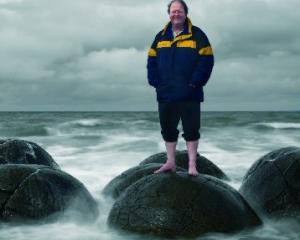Alternative fuels - including from forestry residue and waste - will come up with answers to help replace fossil fuel petroleum, writes Jim Childerstone.
Given the choice of filling up your vehicle from service station (a) offering a product from local sustainable resources and one (b) from fossil fuels at similar prices, and on the same side of the street, which one would you choose?
A good question for those with environmental concerns.
It is within the bounds of possibility a local distributor could offer a way for green activists to fuel up their vehicles while protesting against offshore drilling for oil/gas, and not be hauled over the coals for using fossil fuel products.
There could be choice if current innovative research comes up with the facts and figures to make it viable to extract diesel and petrol from forest residue and sawmill waste.
An announcement by the Ministry of Primary Industries (MPI) last year of a funding initiative for alternative fuels was mostly ignored by the mainstream media, leading to some misunderstanding in the current debate on deep-sea fossil fuel exploration against sustainable resources.
The hard fact is that at present there are no other alternatives. So Oil Free Otago has to put up with being labelled a bunch of hypocrites and nimbys.
Known as the Stump to Pump programme, the initiative was given accolades by Steven Joyce, Minister for Science and Innovation.
The programme has three stakeholders, the MPI through its Primary Growth Programme, Norske Skog and Z Energy, which between them have funded $13.5 million to pave the way for generating more value from forestry waste by converting it to liquid biofuels.
Half the total funding was matched by MPI. Facilities have been set up at the Norske Skog mill in Kawarau to study the feasibility.
Much of the material at present comes from processing waste; sawdust, bark and harvest residue.
This material has virtually no value. However, both David Quinn of Norske and Jonathan Hill of Z were enthusiastic the available biomass from the nation's exotic forest harvests could provide a sizeable percentage of New Zealand's transport fuel supplies.
If the pilot project stacks up, Dunedin is in an ideal position because of surrounding forests to develop a similar project. Mr Quinn believes the result of the trials could be out early this year.
MPI's acting director-general Roger Smith says ''if this material can be used commercially, then we can maximise the value of every tree harvested to the benefit of our primary sector and our economy.
If this technology can be commercialised, the estimated economic benefit for New Zealand over the next 20-25 years is an annual increase in GDP of up to $1 billion and the creation of 1200 direct jobs.''
The biofuel plant under investigation, costing between $80 million and $100 million, could potentially process about 50,000 tonnes of forest waste a year. This development would lead to the next level in its goal of commercialising this new technology.
The oil companies have earmarked $100 plus million per well for offshore oil exploration.
With that sort of funding, what could be achieved for alternative green fuels?, Mr Hill asks.
Z Energy's chief executive Mike Bennetts said the project was ''an opportunity to explore a value chain that could deliver large volumes of biofuels for New Zealand over the long term.''
Mr Hill explained that Z Energy was in a good position to head along this path as it was not committed to any particular oil corporate or cartel; in other words, free to choose its sources of fuels.
From my perspective, these projects to extract biofuels from vegetation are not new, and some countries are well ahead of NZ.
About eight years ago I was involved with ANZ Distilleries working on ethanol production from forests, in this instance clearing wilding trees in the Mackenzie basin for processing at a plant to be set up at Temuka.
I had regular meetings with chairman John Rutherford, of Christchurch, to discuss the logistics.
The process being worked on was extraction of wood resin to produce ethanol. But the oil spike petered out and the project proved uneconomic, at that time.
Another project initiated by Mr Rutherford and the University of Canterbury was processing crop residue from Jerusalem artichoke after tuber harvest, a heavy cropper with high sugar content.
Even if offshore oil/gas resources don't come up to expectations, Dunedin residents can be assured ongoing research in alternative fuels will, in the long term, come up with the answers.
Jim Childerstone is a forestry consultant of Hampden.



